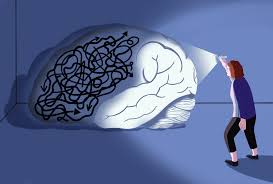
Finding help for ADHD involves many of the techniques we at Transcend have developed in 15 years working with substance use disorders. My own story sheds light on the links between executive functioning and addiction recovery coaching and supportive housing. A recent New York Times opinion piece on rising ADHD diagnoses prompted a retrospective reflection for me. Framing a diagnosis as a call to action was a turning point in my recovery; an opportunity to step up and take responsibility for my own wellbeing that acknowledges the challenges I face as well as the strengths I have. There was a similarity to the freedom of finally admitting that I had a drug and alcohol problem.
The link between ADHD and addiction is well established. Resources from American Addiction Centers note shared mechanisms—impulsivity, reward seeking—and document that untreated ADHD correlates with higher relapse risk. In inpatient treatment, clinicians were blunt about that connection for me personally. I reluctantly accepted my ADHD diagnosis but it later clarified chaotic episodes in my life.
Sobriety removed a layer of distortion and made me much more myself, but my attention still fractured when I returned to college. The interventions that helped the most were practical and communal. Sober living offered peer coaching, visual schedules, task boards, and daily check-ins. Those scaffolds kept me together enough to convert scattered energy into sustained effort and
famous ADHD psychiatrist Ned Hallowell’s prescription felt simple and true: a job that matches your mind’s tempo, and a partner who understands how that mind runs. The recovery community helped me find both. Through working at Transcend NYC I found a career that fits my rhythm, and at a sober New Year’s Eve party I met my future wife! Those two anchors—meaningful work, steady relationship—have stabilized me in ways nothing else could.
Due to my personal experience as well as the observation that a very large portion of our male clients are diagnosed with ADHD, at Transcend’s recovery residence we design sober living with executive function supports built in. Teaching organizational habits, modeling accountability, and embracing strengths, rather than shaming are just some examples. We address behavior, context, and community together and I have found this is critical in supporting clients facing a number of behavioral health challenges, not only addiction.
For people and their families considering care, the takeaway is this: a diagnosis can be a map to finding a life you love, but many of us need help getting there. Armed with structured environments, coaching in activities of daily living, career readiness, and social support, employment/education that fits, that map directs us toward sustained recovery. I will be sharing more on LinkedIn about how neurodiversity intersects with recovery culture. Let’s start a dialogue! Please reach out to me at bix@trancend.nyc